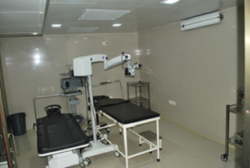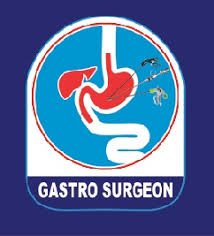Dr. Howard Tay is an Arizona Urologist that specializes in No Scalpel Vasectomies. Today, we’re going to be discussing the risks, recovery, and benefits of getting a vasectomy surgery, along with the difference between the conventional vasectomy and the no scalpel method.
What is a Vasectomy?
A vasectomy is one of the most popular methods of sterilization. It is a very safe procedure that offers a form of birth control with a high track record of effectiveness. A vasectomy is a minor surgery that works to block sperm from reaching the semen that is ejaculated from the penis. This is done by permanently disrupting the flow of sperm from the testicle to the ejaculatory ducts within the prostate gland. After this procedure and with time, the production of sperm within the testicles gradually slows down and is reabsorbed by the body.
Vasectomy Types
There are two different types of vasectomy surgeries that are usually offered. These two types are the conventional vasectomy and the no scalpel vasectomy. In either of the two methods, you may or may not need to be sedated but this will be discussed based on your anatomy, your nerves and your doctor.
Conventional Vasectomy
In this version of the surgery, one or two small cuts are made in the skin of the scrotum to reach the vas deferens. Then, the vas deferens is cut and a small piece may be removed, tied, or blocked, leaving a short gap between the two ends. Some tissue may even be added in between the ends to create a blockage. The one or two cuts may be closed with disposable stitches or allowed to close on their own, depending.
No Scalpel Vasectomy
In the No Scalpel Vasectomy, in which Dr. Howard Tay specializes, the entire procedure can usually be done through a single opening measuring less than a quarter of an inch or 1 cm. Because of this, stitches are often not necessary. In this procedure, the small cut is stretched open so the vas deferens can be gently lifted out and are then cut, tied or seared, and put back in place.
Recovery From A Vasectomy Surgery
After your surgery, one full day of rest is often recommended. It is completely normal to feel sore and those who have gotten this surgery are often prescribed pain medications to ease discomfort. Sex should be avoided for 3-7 days after the surgery, and your urologist will provide you more instructions based on your specific surgery and how it went. Healing usually happens within a week, but it is important to stay in contact with your doctor to monitor how your healing is going. It is also completely normal to have bruising, swelling, and overall pain in the area that the surgery took place. Often, a benign lump or blood clot may form within the scrotum that may be painful or sensitive but not harmful and will get resolve with time. Along with medication, an ice pack to the area of the scrotum also has been found to help. Here are a few other suggestions and recommendations your urologist might advise you to do:
- Be on the lookout for signs of infection which can include a high body temperature (more than 100.4 F), blood oozing from the surgery site, redness, or heavy pain or swelling. If there are signs of infection, you should call your doctor immediately.
- Avoid activity in the week after the surgery, such as participating in sports or heavy lifting of any kind. Overdoing it can lead to bleeding inside the scrotum or infection.
- Your doctor may advise you to wear tight-fitting underwear, a scrotal supporter, or a jockstrap for 48 hours after the surgery.
- Know that even after a week when sexual activity is safe for you to participate in, the vasectomy may not yet be effective due to sperm still in the “pipeline” that will need to be cleared out. You should not consider your vasectomy to be effective until your urologist and a semen analysis proves that it is.
Risks of a Vasectomy Surgery
As aforementioned, vasectomies are relatively safe procedures but can sometimes lead to complications such as swelling and/or bruising, inflammation or Infection. Here are some of the risks:
- A change of mind: If you later find that you change your mind and want to have children, a reversal surgery is a much more complicated process that is not guaranteed to work. It can also be very expensive and may not be ineffective.
- Failed vasectomies are not common but are possible, so it is important to have a follow-up with your doctor, so a pregnancy does not occur in your partner when you are neither one intending it.
- One complication that can possibly occur may be bleeding in the scrotum. This can lead to scrotum growth or severe pain.
- Infection symptoms may present as a fever, or your scrotum may be red or sore.
- Another complication is post-vasectomy pain syndrome. This usually happens in 1 or 2 men out of 100 vasectomies. This can be treated with pain medication or a minor procedure.
If any of the above symptoms happen to you, you will need to reach out to your doctor as soon as you possibly can to get the treatment you need.
It is also notable that it has been found that men who have gotten a vasectomy are NOT at a higher risk for any other medical conditions such as heart disease, prostate cancer, testicular cancer, or other health problems. It is also true that vasectomies won’t affect your sexual health, will not affect your sexual organs, and will not usually cause severe pain of any sort.
Before Getting a Vasectomy
Before you truly consider getting a vasectomy, you should meet with your doctor to discuss options.
About Dr. Howard Tay, MD, Board Certified Urologist
Dr. Howard Tay is a board-certified urologist in Arizona certified by the American Board of Urology. He is an active member in the American Urological Association. He has practiced urology in Arizona since 1996.
Dr. Tay is recognized as a leading Arizona urologists, including several Phoenix Magazine “Top Doc” awards for urology.
He is an active member in advancing urology in the state of Arizona and serves on several hospital committees as is past Department Chair of Surgery at Banner Thunderbird Hospital.
In addition to his practice, he is an educator training medical student and physician assistants in urology at Midwestern University, Northern Arizona University and the University of Arizona Medical School-Phoenix Campus.
Dr. Tay and his wife Christina met while still in college at UC Berkeley and have been together through Dr. Tay’s medical school and residency. They have two children, Kimberly and Kevin. Kimberly is currently a urology resident while Kevin is attending medical school.
In his spare time, Dr. Tay enjoys tennis, racquet ball and gold as well as target shooting, restoring classic cars and home improvement projects. He and Christina love to travel now that they are “empty nesters.”







